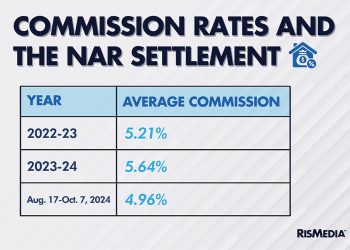
By Stefan Swanepoel
RISMEDIA, Nov. 2, 2007-A large number of meetings held are a waste of time. Many people believe that asking a group to do the job of one will expedite a project and/or remove their accountability. I disagree. Avoid unnecessary meetings at all cost.
Especially if there is only need for one-way information dissemination and not two-way information sharing. Meetings should only be held when the contribution of other team members can be incorporated to effect a different future action or outcome. The following, taken from The Success Series, is a 5 Point Plan that can facilitate a path to more successful meetings.
1. Establishing Ground Rules: Participants need to know what type of meeting this is. The rules, formalities, procedures, etc. – is the meeting formal, informal, a brainstorming session or just an update meeting? Are you expecting members to report progress, present new initiatives, just listen or are they to debate? Ground rules cultivate the basic ingredients and set the stage.
2. Setting Objectives and the Agenda: To meet your plans, you need to plan your meetings. The more concrete your meeting objectives, the more focused your agenda will be. The more prepared the participants are the more meaningful a discussion can be held. Think of what overall outcome you want from the meeting and give all participants something to prepare for the meeting.
3. Managing Time and Staying on Point: Balancing participation while managing time remains one of the most difficult tasks. Although everyone should be given sufficient and fair opportunity to participate, we all know that all contributions are not equal. Keep discussions meaningful, brief and to the point. Focus on the issue at hand and concentrate on reaching a workable conclusion.
4. Document Decisions: Maintain a paper trail. Not necessarily a verbatim transcript but an accurate record. So many times different team members have a different recollection of what was said and even what was decided. This is also a great way for non-attendees to overcome their absence, sustain momentum and effectively participate in subsequent meetings.
5. Assigning Actions: Never finish any discussion without deciding on a plan of action. The magic 10 letters are “Who and When.” Failing to assign tasks with appropriate timelines is a major short coming of many meetings.
Meeting management tends to be a skill often overlooked by today’s leaders and managers. With meetings being a very labor intensive and expensive activity, one needs to remember what John Randolph said: “Time is at once the most valuable and the most perishable of all our possessions.”
A wellplanned, structured and run meeting will not only be enjoyable but a lot more effective than e-mails and missed phone calls. It can also be the instrument that takes a team to new heights, so take meeting management very seriously.
This article is part of “The Success Series” by Stefan Swanepoel. He is author of 13 books and reports and can be reached at www.swanepoel.com.









